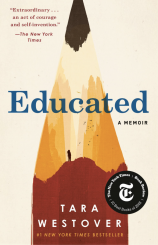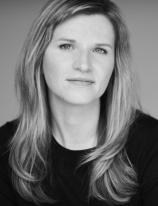Reading Group Guide
Discussion Questions
Educated: A Memoir

1. The author’s father subscribes to many unusual theories and beliefs. Why is it that these beliefs do not seem strange to her or her siblings?
2. How does a love of music shape the author’s life?
3. The author spends her first months at college working several jobs, trying to scrape together enough money for food and rent. Why does not having enough money make it hard for her to focus on her education? What does she mean when she says that the most powerful advantage of money is “the ability to think of things besides money”?
4. “It’s strange how you give the people you love so much power over you, I had written in my journal,” the author writes. “But Shawn had more power over me than I could possibly have imagined. He had defined me to myself, and there’s no greater power than that.” How does the author’s relationship with Shawn evolve? Why is she so drawn to him when he first moves back home? When does she begin to understand that even though she loves him, she needs to protect herself from him?
5. What’s the difference between an education that you choose for yourself and one someone chooses for you?
6. “The word and the way Shawn said it hadn’t changed; only my ears were different,” the author writes. She had never heard of the civil rights movement until she went to college. How does learning about it change her understanding of the role of race in American history? How does it change her behavior?
7. After an episode in which her older brother is violent with her, the author writes her about her denial of what had happened, saying what was most important to her was her “ability to lie to [herself] convincingly.” Later in the book, after her brother has threatened to kill her sister Audrey, she begins to doubt her own memories of the event, as well as her own sanity. Why is it so difficult for the author to accept the reality of her experiences?
8. “I believed myself invincible,” the author writes. She says that asking for help was crucial to healing after her brother’s attacks but, at the same time, asking for help was nearly impossible for her to do. Why is it that when people most need help they find it hard to ask? Why is it that when we are struggling we often isolate ourselves?
9. The author felt uncomfortable at Cambridge, because she had grown up poor and most of the other students had not. To help her, a professor tells her the story of George Bernard Shaw’s Pygmalion, saying, “She was just a cockney in a nice dress. Until she believed in herself. Then it didn’t matter what dress she wore.” What does the professor want the author to understand about who belongs at that university and why?
10. The author writes about the conflict that can arise between loyalty to yourself and loyalty to others. Of her own decision to become estranged from her father, she has said, “You can love someone and still choose to say goodbye to them. You can miss someone every day, and still be grateful they are no longer a part of your life.” What does it mean to forgive someone but to choose a path that leads away from them?
Educated: A Memoir
- Publication Date: February 8, 2022
- Genres: Memoir, Nonfiction
- Paperback: 368 pages
- Publisher: Random House Trade Paperbacks
- ISBN-10: 0399590528
- ISBN-13: 9780399590528







